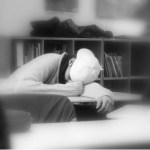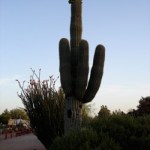Science Education
Check out Element Displays, including The Element Collection and Interactive Installations. Each page is also interactive - keep clicking for more information.
From NESCENT:
Carl Zimmer
"Darwin and Beyond: How Evolution Is Evolving"
February 12, 2009
6:30 pm - 7:30 pm
Talk Overview: Charles Darwin launched the modern science of evolution, but he hardly had the last word. In fact, today scientists are discovering that evolution works in ways Darwin himself could not have imagined. In my talk I will celebrate Darwin's achievements by looking at the newest discoveries about evolution, from the emergence of life to the dawn of humanity.
Please join us for a Darwin Day presentation by Carl Zimmer. Mr. Zimmer is well known for his popular science writing…
From SCONC:
Tuesday, Feb. 10
7 p.m.
Science Cafe Durham: Transforming Learning Through Computational Thinking
Bob Panoff of the Shodor Foundation tells Periodic Tables why he left academics to create an organization devoted to hands-on learning projects.
Broad Street Café, 1116 Broad Street, Durham, NC 27705.
More - http://www.ncmls.org/periodictables#transforming
I’m quoted in a press release regarding a teacher training workshop (the “Evolution Challenges Workshop”) we’re giving at ASU to help middle and high school teachers teach evolution. Money quotes:
Studies have shown that “16 percent of high school biology teachers are essentially young earth creationists who deny human evolution, with only 28 percent accepting unguided naturalistic evolution of humans,” says John Lynch, a lecturer in ASU’s School of Life Sciences and an Honors Faculty Fellow in Barrett, the Honors College. “While this latter number is higher than the general public’s 13…
From SCONC:
Wednesday, Feb. 4
5:30 p.m.
SCONC reception at NISS
National Institute of Statistical Sciences in RTP (click here for directions) has invited the SCONCs over for our usual socializing/networking/eating/drinking and a talk with Dr. Stan Young, Assistant Director for Bioinformatics at NISS. Stan is a one-man army fighting multiple testing/false positive reports that abound in most observational studies. He's on a crusade to save us from bad statistical errors. Please RSVP to NISS Communications Director Jamie Nunnelly (Nunnelly@niss.org) by close of business on Monday, February 2.…
Hosted by Museum of Natural Sciences:
Supernova: The Violent Death of a Star
Massive stars end their lives in spectacular supernova explosions, visible across the Universe, that blast material into space that contributes to future generations of stars, produces cosmic rays, and stirs up interstellar gases. Many heavy elements, including the calcium in our bones and trace amounts of copper and zinc in our bodies, are formed only in supernovae; we are quite literally made of star stuff. Some supernovae can even be used to gauge distances to remote galaxies; from these we have learned the…
Here's Venom In Your Eye: Spitting Cobras Hit Their Mark:
Spitting cobras have an exceptional ability to spray venom into eyes of potential attackers. A new study published in Physiological and Biochemical Zoology reveals how these snakes maximize their chances of hitting the target. Using high-speed photography and electromyography, scientists uncover the mechanics of a cobra "spit."
New Insight Into How Bees See Could Improve Artificial Intelligence Systems:
New research from Monash University bee researcher Adrian Dyer could lead to improved artificial intelligence systems and computer…
In our heads, of course. All of our heads.
But Seed is asking, so let me elaborate briefly.
As I said before, science is not just active participation in research. Science is a mindset.
We are all born scientists, exploring the world around us and experimenting with it. When we grow up, we continue being scientists in our day-to-day lives.
If you walk into a room and flip a switch and the light does not come on, what do you do? I doubt that you throw yourself on the floor in fear, speaking in tongues, praying, blaming the Aliens or asking the Government to help you. You calmly go about…
In Boone, NC:
Michael Ruse will present "Darwin at Two Hundred Years Old: Does He Still Speak to Us?" Monday, Feb. 2, 2009, at 8 p.m. in Farthing Auditorium. Ruse is the Lucyle T. Werkmeister Professor of History and Philosophy of Science at Florida State University and the foremost philosophical scholar on the relationship between evolution and science. He is the author of "Can a Darwinian Be a Christian?"
On Tuesday, Feb. 10, 2009, Jim Costa, director of the Highlands Biological Station at Western Carolina University, will discuss "Charles Darwin and the Origin of the Origin." The talk is…
From a current freshman:
In college, one lecture class has about 250 students in it and the information goes by really fast. We would cover about 3 chapters in an hour, about three days a week. At first it took me a while to get used to the speed and the way the professors taught. In high school, the teachers are very careful about making sure the students understand and take in the subject but in college, the professors don't really care whether you're in class or not. This realization hit me like a ton of bricks because finally, after years of supervision from teachers and parents, it was…
One of the newfangled ideas that's popped up in education in the past few years has been notion that more interactive methods of teaching will lead to better results.
There's an appealing logic to this notion.
Figure 1. A traditional lecture may not be the ideal way to transfer information.
Technorati Tags: education, active learning, clickers
To quote Eric Mazur (1) quoting D. Huff (2):
I once heard someone describe the lecture method as a process whereby the lecture notes of the instructor get transferred to the notebooks of students without passing through the brains of…
I get e-mails about such events, so I thought I'd share, so you can attend some of these talks if you want:
NCSE's executive director Eugenie C. Scott will be speaking twice in North Carolina shortly.
First, at 7:00 p.m. on January 27, she will be speaking on "Darwin's Legacy in Science and Society" in the Wright Auditorium on the East Carolina University campus in Greenville. "Charles Darwin's publication of On the Origin of Species in 1859 was an extraordinary milestone for science, but it also had profound effects on theology, philosophy, literature, and society in general. Nowhere is…
Since I'm an adjunct faculty member at a couple of community colleges, I'm able to delete most of my e-mail with barely a glance.
But this one made my jaw drop!
Dear Educators:
Alliance Library System and LearningTimes are pleased to announce an
exciting conference featuring science and virtual worlds. On January
30th we are "Stepping Into Science" and taking the day to explore the possibilities of using virtual worlds to learn about and teach science.
The conference will be taking place entirely in Second Life and will
feature a keynote and panel discussion as well as small breakout…
The 2009 Summer Research Experience for Undergraduates in Environmental Microbiology at UNLV is now accepting applications. This NSF supported program provides undergraduates with an opportunity to perform independent research under the guidance of a faculty mentor.
Students will collaborate with faculty mentors in developing and carrying out hypothesis-based projects on microorganisms from diverse habitats such as hot springs, the deep terrestrial subsurface, hypersaline lakes, arid soils, and ephemeral water sources. Students may also choose to explore the mechanisms of magnetotaxis,…
From SCONC:
The next Sigma Xi Pizza Lunch is noon, THURSDAY. Jan. 22. The title: "Dinosaurs under the microscope: New ways to look at old bones."
Come hear NC State University paleontologist Mary Schweitzer explain why she rocked science not long ago with evidence that soft tissue survived in a 68-million-year-old dinosaur fossil. Not all fossil experts accept it, but many do. If Schweitzer is correct, she's found a whole new route to explore the biology and evolutionary lineage of extinct life.
Pizza Lunch is free and open to science journalists and science communicators of all stripes.…
Homeschool Showcase (Formerly The Carnival of Cool Homeschoolers) #15 is up at Weird, Unsocialized Homeschoolers. I've got an item listed in the carnival, which is typical (I often send potentially useful science content material to the homeschooling carnivals.)
While you're studying Earth science, you may want to check out Nature's Evolutionary Gems posted by Greg Laden at Greg Laden's Blog. It's up to you whether you use it to teach evolution as fact or as a teachable moment as you discuss God's creation. I know how we'll be using it. ;-)
Wink wink indeed!
If you live around here or if you are coming early or staying after ScienceOnline'09, you may be interested in science/nature stuff you can see around here. I know, it's January and some of those facilities are not at their rose-blooming peak, but they are worth a look:
Take a look at the awesome North Carolina Museum of Natural Sciences in Raleigh, Museum of Life and Science in Durham, Hemlock Bluffs Nature Preserve and Stevens Science Center in Cary, Morehead Planetarium and Science Center in Chapel Hill and JC Raulston Arboretum in Raleigh.
I'd also add NC Botanical Garden in Chapel Hill…
And Public School Administrators, too.
There is a message being sent out, by the Discovery Institute (a non profit creationist 'think' tank) encouraging creationist students and teachers to "Suit Up, Sign Up, Show UP, Act Up and Start Up" (whatever that all means) on February 12, which of course, is Charles Darwin's 200th birthday.
As my friend and colleague Mike Haubrich says, "Fight for your right to be ignorant!"
The Discovery Institute is, obnoxiously, calling Darwin's Birthday "Academic Freedom Day," and encouraging a general uprising in life science classes throughout the country.…

